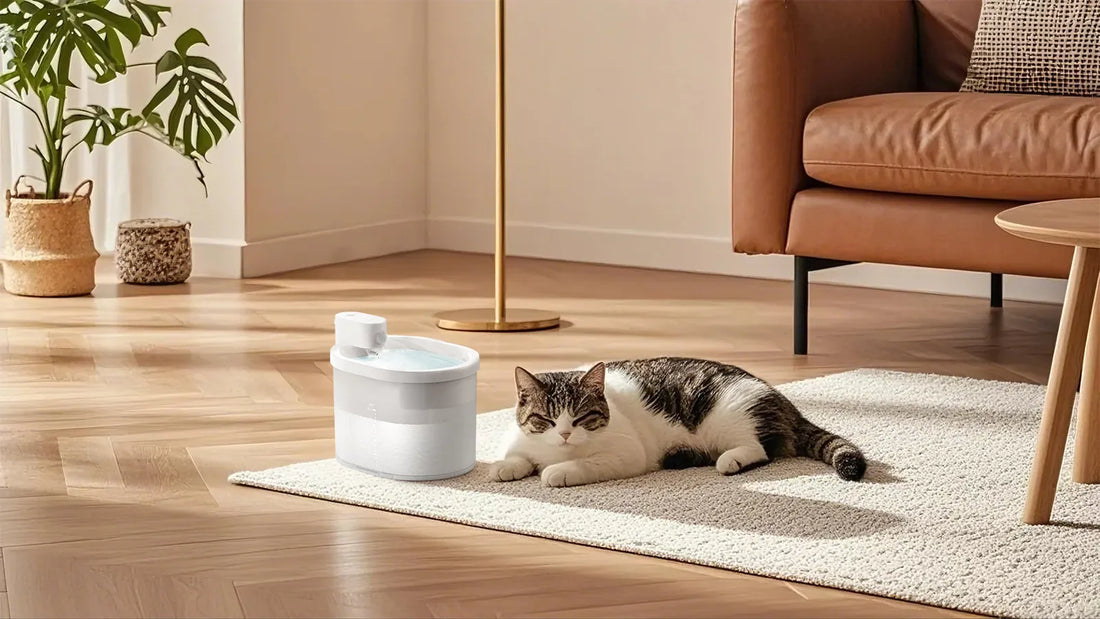If you've ever seen your cat throwing up water, you know how alarming it can be. While occasional vomiting might not be a cause for concern, frequent episodes can indicate an underlying issue. Understanding the reasons behind this behavior and knowing how to address it can help ensure your feline friend stays healthy and happy.
Common Causes of Cat Throwing Up Water
Cats may throw up water for various reasons, ranging from minor to serious health concerns. Some of the most common causes include:
- Hairballs: Cats groom themselves frequently, and hairballs can sometimes lead to vomiting, including water.
- Dietary Issues: Sudden changes in diet or eating too quickly can cause your cat to vomit water.
- Dehydration: Ironically, dehydration can lead to vomiting water as the body tries to expel toxins.
- Infections: Viral or bacterial infections can cause gastrointestinal upset, leading to vomiting.
- Kidney Disease: Chronic kidney disease can result in increased water consumption and subsequent vomiting.
Symptoms to Watch For
While occasional vomiting might not be a cause for concern, certain symptoms should prompt a visit to the vet. These include:
- Frequent Vomiting: If your cat is throwing up water multiple times a day, it's time to seek professional advice.
- Lethargy: A lack of energy or interest in activities can indicate a more serious issue.
- Weight Loss: Unexplained weight loss accompanying vomiting is a red flag.
- Changes in Appetite: A sudden decrease or increase in appetite can signal underlying problems.
- Blood in Vomit: The presence of blood is a serious symptom that requires immediate attention.
Diagnosing the Problem
To determine the cause of your cat throwing up water, your vet may perform several diagnostic tests. These can include:
- Blood Tests: To check for infections, kidney function, and other health markers.
- Urinalysis: To assess kidney health and hydration levels.
- X-rays or Ultrasounds: To look for blockages or abnormalities in the gastrointestinal tract.
- Endoscopy: A procedure to examine the stomach and intestines more closely.
Effective Solutions and Treatments
Once the cause of your cat's vomiting is identified, your vet will recommend appropriate treatments. These can include:
- Dietary Changes: Switching to a more easily digestible diet or feeding smaller, more frequent meals.
- Hydration Therapy: Ensuring your cat stays hydrated, possibly through subcutaneous fluids.
- Medications: Antibiotics for infections or anti-nausea medications to control vomiting.
- Surgery: In rare cases, surgery may be needed to remove blockages or address other physical issues.
Preventive Measures
Preventing your cat from throwing up water involves a combination of good care and vigilance. Here are some tips:
- Regular Grooming: Brushing your cat regularly can reduce the amount of hair they ingest.
- Consistent Diet: Avoid sudden changes in diet and ensure your cat eats at a steady pace.
- Clean Water: Always provide fresh, clean water to encourage proper hydration.
- Routine Vet Visits: Regular check-ups can help catch potential issues early.
Seeing your cat throwing up water can be distressing, but understanding the potential causes and solutions can help you take the right steps. Always consult your vet if you're concerned about your cat's health. With proper care and attention, you can help your feline companion lead a healthy, happy life.














